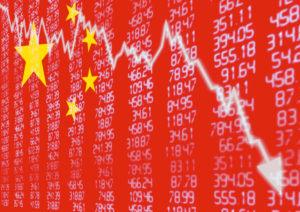
The coronavirus is just one more reason you should avoid direct investment in China. Symptoms of a bigger problem are the decisions of the Chinese government to:
- restrict information on the spread of the virus,
- deflect blame onto others, and to
- silence early attempts to alert the public to the problem.
In 2012, I explained China’s bigger problem to readers, and why you should avoid the Middle Kingdom as an investment destination:
China
I have long advised against direct investment in China. Among the many reasons I am bearish on China is the country’s vastly distorted economy. China is a command style economy run by an unelected political party—the Communist Party of China (CPC). The CPC’s policies have resulted in a grand misallocation of capital. A mercantilist currency policy, perverse incentives for provincial government officials, and crude monetary policy tools have helped inflate a fixed asset and real estate bubble that puts the U.S. real estate bubble to shame.
A Quality Problem
It should be obvious to most that things are not as they seem in China. China has reported GDP growth of 9% or more in every quarter over the last two years, but the Shanghai Composite Stock Index has plunged more than 30% during that time. If China’s economy were truly booming, Chinese shares would most likely be trending up. China suffers not from a quantity of economic growth problem, but a quality growth problem. China’s GDP statistics are being propped up by unproductive fixed asset investment. The real estate sector is the most obvious example. To prop up GDP growth rates the Chinese are building entire cities, but they are virtually empty.
It is perplexing that the world has allowed a command style economy run by an unelected political party to become such an important player in the global economy. China is now the world’s second largest economy and America’s second-largest trading partner. If China heads into the tank, the world economy will suffer.
No Profit Motive
China doesn’t play by the same rules or have the same motives as the world’s other large economies. China has consistently manipulated its currency to gain export market share and it has subsidized favored industries through its financial system to the detriment of non-Chinese companies. Take the rare earths industry as an example. China now has an effective monopoly on rare earths production. Not because of the country’s low labor costs or a lack of reserves in other countries, but because Chinese rare earths companies were provided with subsidized loans. Rare earths companies ramped up production in the ’80s and ’90s and drove prices down to unprofitable levels. The Chinese government was more interested in maintaining stability through high employment then, as they are today. Low prices pushed rare earths producers in the U.S., Australia, and elsewhere out of business. With the support of subsidized loans, China’s rare earths companies were the only companies able to remain in business at such low prices. Now the U.S. relies on China (at least temporarily) for a supply of metals vital to the defense industry and other high-technology industries. Sound like a smart strategy to you?
Chinese Hacking
There is also mounting evidence that China has been hacking into the networks of U.S. companies and organizations. The Wall Street Journal reported recently that a group of hackers (read: the Chinese government) hacked into the U.S. Chamber of Commerce’s computer network. The Journal reports that the hackers may have had access to the Chamber’s network for more than a year before the breach was discovered. The full extent of the damage from the hacking incident will be difficult to determine, but it is possible the Chamber’s network was used to send booby-trapped emails to Chamber members (large U.S. companies) to gain access to their computer networks with the likely intention of stealing trade secrets. According to the U.S. counterintelligence chief, the Chinese are “the world’s most active and persistent perpetrators of economic espionage.”
So then, China unfairly manipulates its currency to gain export market share, it subsidizes favored industries driving companies in America and other countries out of business, and it illegally hacks into U.S. company computer networks. Sound like a country that should be our #2 trading partner? How about a country you want to invest in? I continue to avoid Chinese shares and advise the same for you.
China’s command economy and the fear its leaders have of losing power are at the heart of the three problems I laid out for you at the beginning of this post. That’s not a way to run one of the world’s largest economies.
Despite my aversion to investing in China, I encourage you to invest internationally. My Retirement Compounders® investment program invests in many foreign companies with stellar records of paying and increasing dividends each year.
If you’d like to learn more about the value of investing in foreign companies for dividends, read Dividend Investing: A Primer from my family-run investment counsel firm, Richard C. Young & Co. Ltd. In the report, you’ll discover how many developed countries’ stock markets have higher average yields than that of the United States. The number is probably more than you’d think.
Originally posted on Young’s World Money Forecast.



